When Chris Heerdegen founded OnDemand Painters, he wasn’t just looking to launch another painting company; he wanted to transform the industry.Rec ...
The Blue Raven Approach to Estate Sales with Alyson Flynn
Written by: Carolyn Young
Carolyn Young is a business writer who focuses on entrepreneurial concepts and the business formation. She has over 25 years of experience in business roles, and has authored several entrepreneurship textbooks.
Published on December 27, 2023
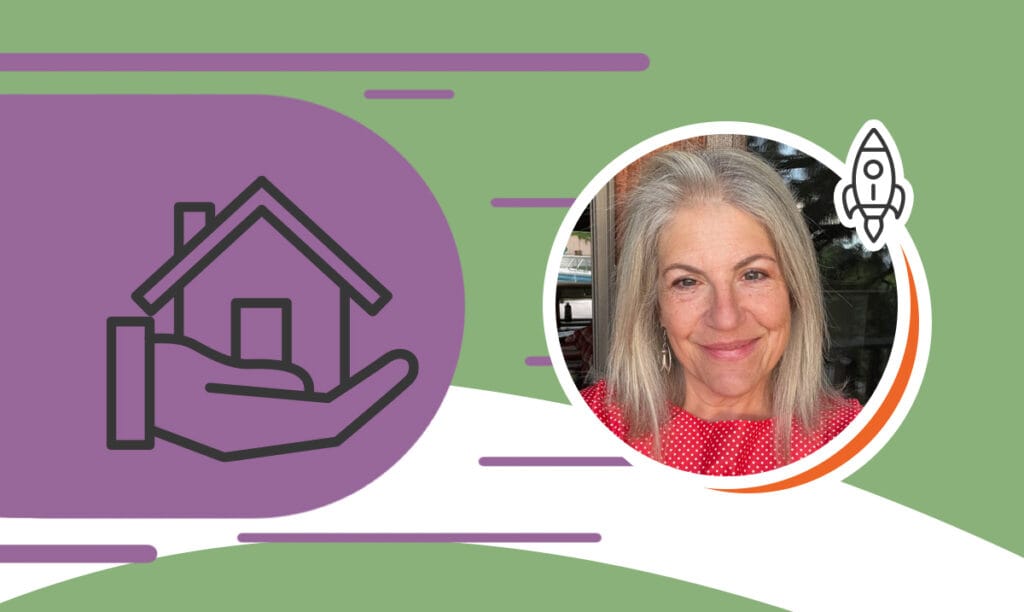
In an enlightening conversation with Alyson Flynn, the owner of Blue Raven Estate Sales, we delve into the journey and inner workings of a company renowned for its estate sale services. With decades of marketing experience and a deep understanding of the intricacies of estate sales, Alyson shares her insights on launching and growing the business, the challenges faced, and the strategies employed to stand out in a competitive market. This interview offers a rare glimpse into the world of estate sales and valuable advice for aspiring entrepreneurs.
Blue Raven Online Presence
Website: https://www.blueravenestatesales.com/
Facebook: https://www.facebook.com/profile.php?id=100089012652888
Instagram: https://www.instagram.com/blueravensales/
LinkedIn: https://www.linkedin.com/in/alysonflynn/
Alyson Flynn Biography
Alyson Flynn is the founder and owner of Blue Raven Estate Sales. She’s worked in Albuquerque estate sales since early 2021, when she founded and co-owned Desert Bloom Estate Sales. Under her leadership, the company quickly became the region’s most trusted estate sale company.
Alyson has strong trusting relationships with appraisers, resale businesses, other estate sale companies, HOAs, realtors, customers, and clients.
Alyson co-owned Simplify: Your Clutter Consultant for many years, organizing families in their homes. She has cared for older individuals since 2016, assisting in major life transitions.
Alyson’s past employment experience includes Manzano Mountain Art Council, Schweb Design, Founder of Faces of Spina Bifida magazine, Value Prop Interactive, Mission Columbus, Harrington Management Group, and Purdue University.
Her creative assets and content strategies generated measurable results for over 30 years at start-ups and non-profit organizations in Washington, DC, Tennessee, Indiana, Ohio, Texas, and New Mexico.
Company Description
We provide white-glove estate sale services to families in transition. Our clients include couples moving to assisted living communities, children of elderly parents, real estate agents, and legal trusts. When you work with Blue Raven Estate Sales, expect a secure liquidation of your home contents and the most competitive profits in the area.
Establishing Blue Raven Estate Sales
SBS – How and when did you start Blue Raven Estate Sales? Did you have some background or not?
Alyson – My background was not in retail, and it wasn’t in estate sales at all. However, learning about how estate sales operate made me realize that it uses all of my personal skills. Some of those skills are caregiving for others and being attentive to older people or families who are grieving.
Over 15 years, I had several mentors who were small business owners. I had launched businesses for them and learned from them how to be a small business owner. I moved to this city in New Mexico in 2019 and got a part-time job. I didn’t know anyone in the area. I had never done estate sales, so it wasn’t on my radar. I started doing marketing for a nonprofit organization. It wasn’t full-time, and the pay wasn’t going to hack it, so I started looking around for other places to work.
I worked for one of the best estate sales companies in Albuquerque. The owner had just sold the business to someone else, so I worked for the new owner. Within a couple of weeks, I could see what all the gray areas were in business.
I have two groups that I service. My client owns the house and what’s in it, and my customers come and shop there. I could see where all the gray areas were in running the business and how it would be possible not to disclose how much money was earned. It was potentially not caring for the customer, and I felt like I could provide a better service for the client while still providing the same quality of sale they had had before, so I left.
It was a bumpy road because, at first, I launched a business with a business partner, and I did all of the marketing and the launch, but we were not on the same page in terms of the amount of work that was required and how we were going to divide the labor. So, after a year and a half, I left that business and started Blue Raven Estate Sales. So, within a two-year period, I launched two companies in our market. She now owns the other one, and I own this one. That’s the history of how I got into estate sales and how I started this business.
I approach launching a business (and I’ve assisted other people in launching their businesses and products) by making a spreadsheet. Who are all of our competitors? What’s their phone number? What’s their website address? Then, as I dig in deeper and understand how that industry works, I might break out. I also write down how many times a month they make a sale and what their methods for communicating their sales are. I went to each of their sales. I met as many owners as I could to know who they were and how they worked. I figured out their strengths and weaknesses, then developed a unique brand that I applied through graphics and writing to describe my company. It goes on LinkedIn and the website. This is the public-facing description of my business.
Customer Acquisition and Retention Strategies
SBS – Can you tell me your strategies to attract new customers to the company and retain the existing ones?
Alyson – The biggest thing that I noticed in my area was that the other companies didn’t present themselves business-wise as being very professional.
SBS – In which way?
Alyson – In every single way, from physically dressing up and making appointments and showing up at those appointments, all the way to brochures. I am the only company that has brochures. I have one sheet with two sides, and it explains every little detail of what it’s like to work with me. So, when I leave, they have all that information and decide based on their gut and how they connect with me. Nobody was taking those professional steps.
My background is in marketing, so my photos, English, and writing are better. Whenever I face someone (a client or a customer), my first goal is to present myself as professionally as possible. It sounds obvious, but people get into business for various reasons and are not necessarily good at it. I know that’s obvious, but it goes a long way. What happens is that very quickly, other professionals hear about the services that I give and how people are treated by me, and that just expands.
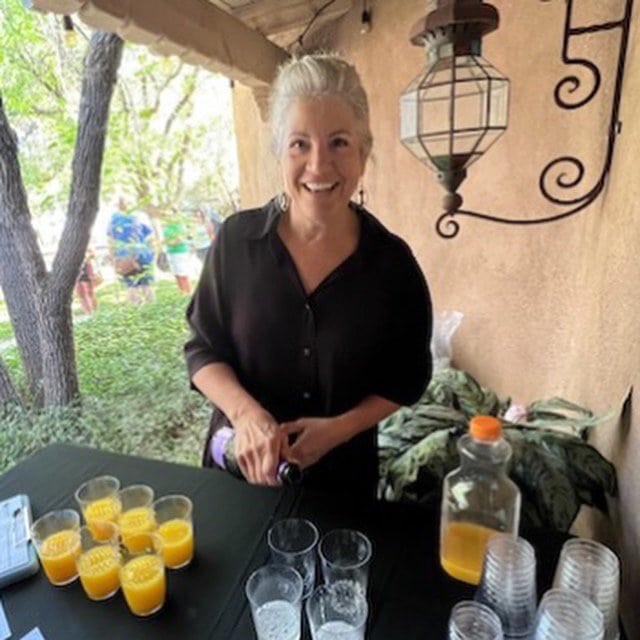
Overcoming Challenges in the Industry
SBS – What challenges have you faced, and how did you overcome them?
Alyson – I think it’s the same idea even in larger companies. A business can be scaled differently, or you have an investor. I put under $10,000 (about $5,000 or $6,000) into the business, setting it up, getting it online, advertising through Google, and buying some of the supplies I needed. I booked my first house, but I didn’t have any employees (it’s easier to say employees, but they’re legally contract workers).
I knew people, but I knew them as working for my old company, and I wasn’t there anymore. So, I needed to hire people who could do the work while I booked the first house, and then I had a timeline to complete it. I didn’t know if I would have enough employees to complete the job and earn enough money from the sale of that house to pay everybody and my monthly expenses for the business.
In the first year, I very much put myself aside and did not pay myself very consistently to make sure that each house and sale was profitable, that I could pay my employees, and that my client got a percentage of the profits. Then, my business gets a portion just for monthly operations.
My first challenge was booking a house. We needed to do the sale in three or four weeks, but I had no employees. This was almost as scary — as I started interviewing employees, some came with me from the other company, and the question was whether I’d have enough to pay them on the last day of the sale.
Marketing Expertise and its Impact
SBS – What areas of Blue Raven has your background and experience in marketing helped the most?
Alyson – Having experience in marketing just immediately puts me ahead of everybody else because most small businesses either can’t afford it or don’t think to pay for it. On the first day I started, I knew I had the best marketing in the entire industry, except for maybe one other company, my former company, because I had established all their marketing. But I knew mine would remain consistent, and theirs would change because I wasn’t doing it anymore.
Marketing is the last thing that businesses do for themselves. It’s also the first thing they cut when there’s not enough money. Having that completely established and being able to rely on it just saved me a lot of time and gave me a huge advantage. I knew that nobody else was doing the brochures. Nobody else was making a presentation. That took so much stress off of me because when I meet someone, I can be right there in the moment with them. I can listen very carefully to what they’re saying their needs are, and then I can respond to those needs because I know I’m not spending my time convincing them I’m a professional. They already see that.
Client Security and Confidentiality Measures
SBS – How do you ensure clients’ security and confidentiality through the liquidation process?
Alyson – I protect their privacy and security in two ways.
One way is physically, in the house. That means I can trust the people I hire. The people I hire will follow instructions and the process for locking, securing, and leaving the house as the client has asked. If the house has a security system, we’re using that properly. If it doesn’t, we’re walking the house every day, ensuring every window is closed, every door is locked, and the lights are left the way clients want.
The other way I preserve their privacy is by protecting their personal information. All of my clients are telling me a private, personal story that is happening in their family right then. My discretion in what other people learn about them and what’s going on in their lives is also important. If I look up their name online in the marketing, and they’re famous, I always get their permission first, and I use their online professional information to promote the sale, but I don’t use their personal information.
For example, I have an artist whose daughters have come because he can’t live alone anymore. He’s incontinent and wearing a diaper. The daughters are stressed out. They’re trying to pack his stuff. He’s not able to handle things. That’s personal, private information. I don’t even disclose what is happening inside that family to my employees, but I let them know enough about our clients that they have compassion and care in the house.
Then, when we have a sale, I could have between six and 800 people come through the house in three days. A helpful way to see to that is that I’m the last person who gets paid. I pay everybody else, including the business. I pay my employees, the client, and the business. I’m the last person, so if someone steals, I might not get paid. That helps me and motivates me to run a tight ship and ensure my employees carefully observe what’s going on and protect the business.
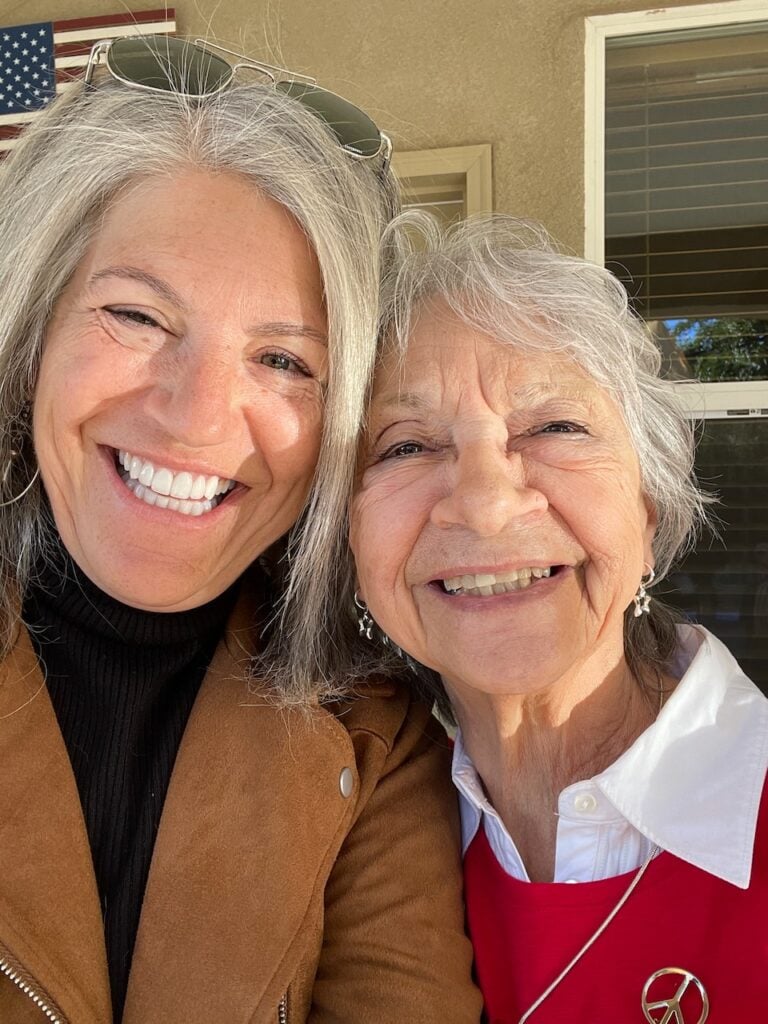
Essential Tools and Technologies
SBS – What tools, equipment, or software do you use to help your business (in marketing or real estate/estate sales)?
Alyson – I don’t use much technology to attract new customers. I do advertise online with Google Ads. Some people use that to hire me to work in their house, to learn about my company, and to attend my sales.
Getting new clients has to do with relationships — that has me having very good relationships with attorneys, realtors, and maybe some accountants who work with older people or people moving to a nursing home or assisted living. I need a lot more tools to attract them.
I’m less than a year from my first sale, but I’m over a year in starting the business. In that time, I have attracted regular customers who look for me, expect to see a sale, and want to attend all of my sales. In order to do that, I built an email list. During every sale, I collect new email addresses and notify them about future sales.
There are a few websites that cater directly to the real estate sales industry, so I promote my sales on their websites, too. That gets me new customers and gives me a national view of what I’m selling. If they’re unique and unusual, it gives me a larger audience of professionals and new customers. Those are the two things I’m most dependent on.
Facebook and Instagram could go away. I probably couldn’t live without Google, but I need my email list, and I need these industry websites because I’ll post every photo of everything I’m selling on there so people can see it.
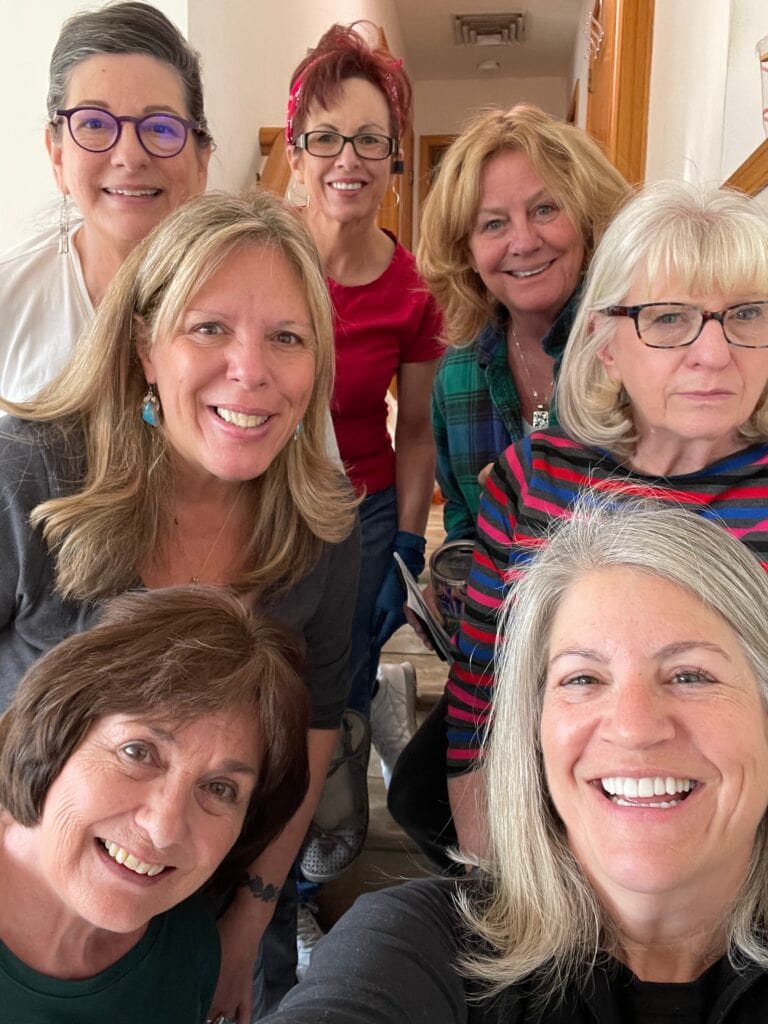
Future Prospects and Expansion Plans
SBS – How do you see the future of your business in the next couple of years? Are you staying in the town or looking to expand and hire more people?
Alyson – Right now, I’m scheduled out all the way through January. I have two houses scheduled for January. We’ve already started one, and we will start setting another. My January looks great. I just got a phone call from a woman who interviewed me last August. She’s ready to get started.
As for what the future holds for me — one thing I learned is that I’m the special sauce. It’s me. I don’t want to expand. We have a city 50 minutes away, and I could expand there if I had the right house. It would, however, require me to hire people in that city because the commute is too far from here for a daily job.
I need to focus on the luxury homes and selling what’s in them because I pay my employees more than everybody else because I trust them. They’re there because they can get the job done and do some things without me being there. I’ve learned that to grow my business, I need the sale to generate more income. It’s more important than getting more houses. I could do a lot of houses that generate $1,000 profit, but it’s not worth my effort because I still do all the marketing and meet with all the clients. If I added more houses, that would increase my work, but I want the profits to be better per sale.
This is my strategy. I went on Zillow on my phone and opened a spreadsheet on my laptop. I made a list of every realtor selling a house over $750,000. I organized them by area of the city. I wrote a cover letter. I folded it up. I put two of my brochures in it and visited every location. I’m still working on it this and next week.
I say to realtors, “Congratulations on your million-dollar house.” I introduce myself, saying, “I take care of clients like yours, and I would love the opportunity to work with you in the future.” It’s called door-knocking. I’m pounding the pavement. I’m walking to each business. It means something to them because they’ll recognize me, and they may hire or recommend me.
They also have heard me speak about my business. I’ve explained the quality I want to provide, and nobody else in my industry is doing that. Nobody else is meeting with people one-on-one and making that effort, which goes a long way in business.
Getting a thank-you note in the mail, or whatever, people don’t do that anymore. People don’t go in person and put their hand out and say, “Hi, I’d like to meet you,” so that goes a long way.
Instead of doing it to every realtor, I narrowed it down to the houses I’d want. I want more valuable houses so that the big effort we put into that house generates more money than a big effort we put into a house that generates little money.
Insights for Aspiring Estate Sales Entrepreneurs
SBS – What advice would you give someone just starting an estate sales business?
Alyson – I don’t think my advice is industry-specific. You need to find out if you’re good at being a small business owner. I would do that by practicing. In my industry, there are people that need my services everywhere. You’ll have a neighbor who died, and you’re talking to her daughter, and her daughter says, “I don’t know what to do with all this stuff.” I say, “Give me a chance to see if I can run an estate sale instead of a garage sale for you.”
It wasn’t until I was practicing running this business that I saw all the little areas and nuances and understood it better and better. My pitch for getting new clients got better and better and better as I knew and understood how this business worked. The only way to do that is to practice. You have to be willing and not embarrassed or ashamed of practicing, failing, and trying to figure it out. Have some curiosity and be passionate about what you’re doing and practice. You are building a track record but in your own space.
Do it a couple of times to see if you like it. There’s nothing worse than going through all the hoops to set up a legal business and then finding out that you’re just not the person who should be doing it. You have to be good at your industry, and you have to be good at running a business. You have to be good at both, and if you’re not good at both, it’s just not a good job choice.
Subscribe to Our Newsletter
and gain insider access to cutting-edge business insights and trends.
Featured Resources
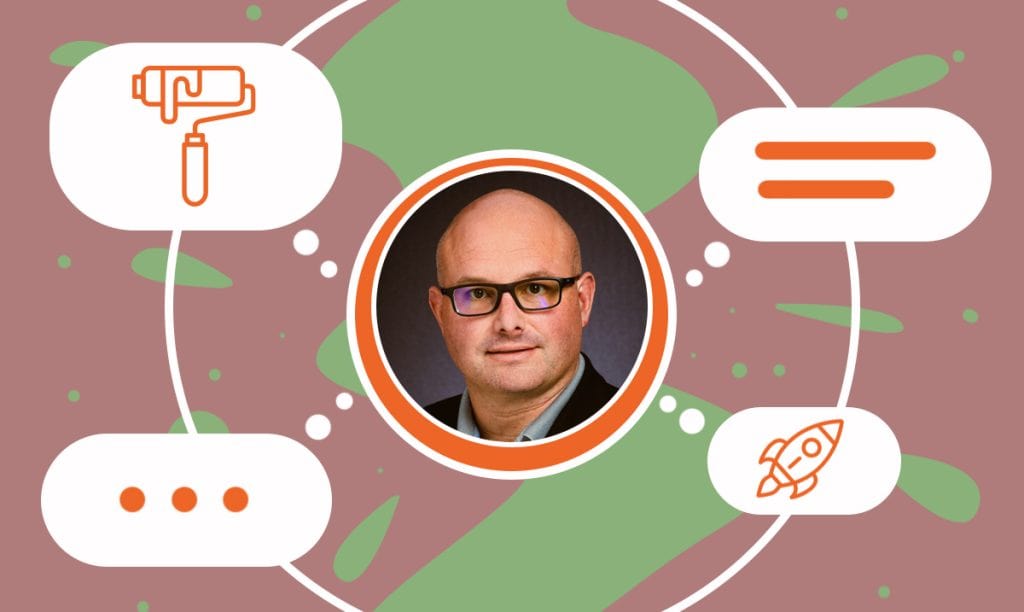
How Chris Heerdegen Built a Multi-City Painting Business
Published on October 4, 2024
Read Now
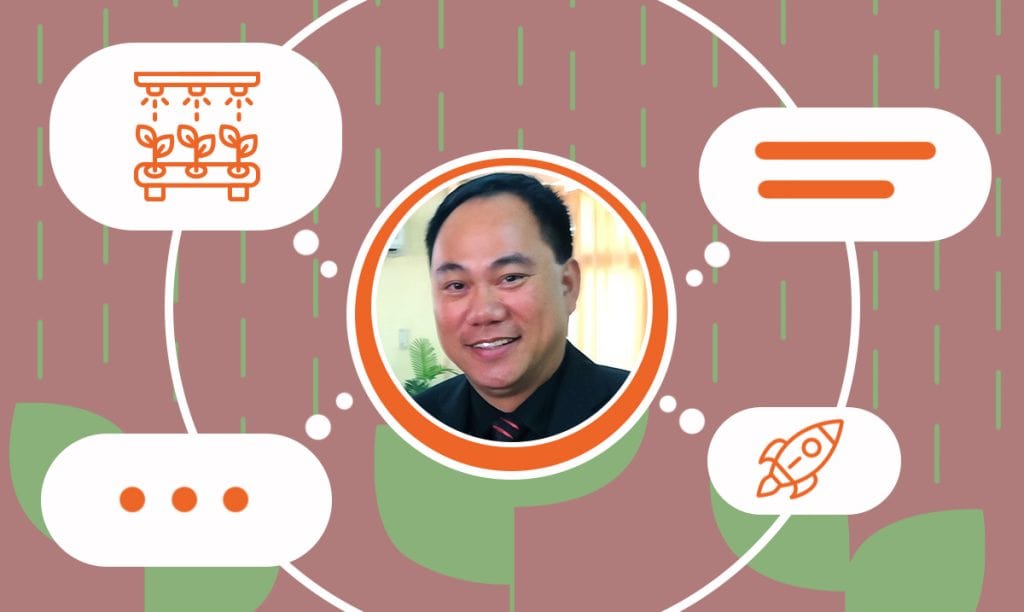
How a Retired Veteran Built Kern County’s First Hydroponic Farm
Published on September 6, 2024
Gerry Mateo, a retired veteran, found an unexpected opportunity during the pandemic with the creation of FilAm Vets Hydroponics Farm. As the firsthy ...
Read Now
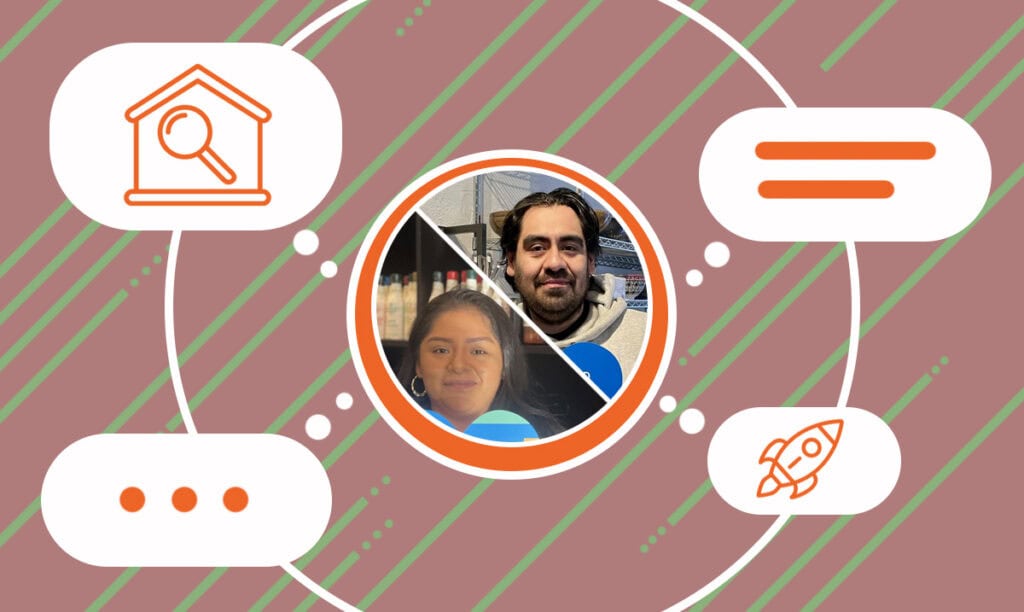
How Family-Owned Kitchen Supplies Business Thrives in Brooklyn
Published on June 25, 2024
In the heart of Clinton Hill, Brooklyn, Indulge Kitchen Supplies stands as a testament to the passion and dedication of its founders, Luis and AmyTa ...
Read Now
Comments